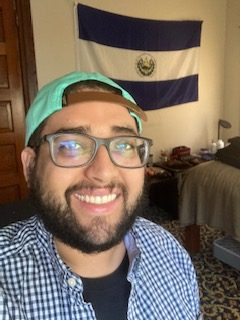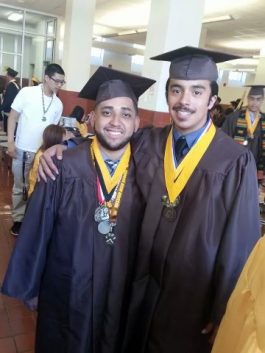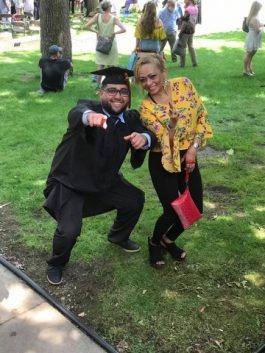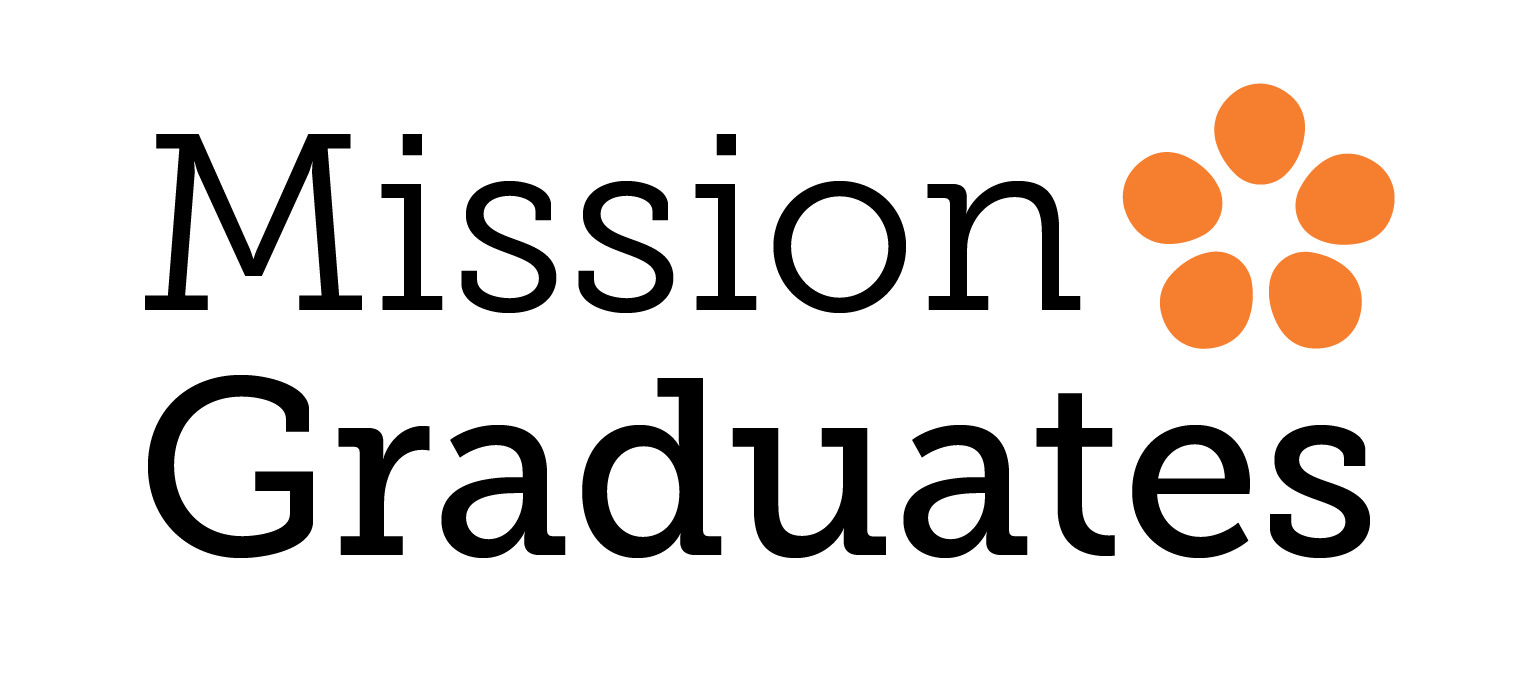 In this post, we want to highlight the journey of Mission High School and College Connect alum, Jonathan Aleman-Castro. Jonathan graduated from Mission High School in 2014, and journeyed to the Midwest to attend Kalamazoo College, a four-year liberal arts university in Michigan. Like many students, he took a non-traditional approach through university and recently graduated in 2021 with a Bachelor’s in Psychology. After returning to the Bay Area, he decided to return to the Mission community and find his place in the field of college access with ASAP.
In this post, we want to highlight the journey of Mission High School and College Connect alum, Jonathan Aleman-Castro. Jonathan graduated from Mission High School in 2014, and journeyed to the Midwest to attend Kalamazoo College, a four-year liberal arts university in Michigan. Like many students, he took a non-traditional approach through university and recently graduated in 2021 with a Bachelor’s in Psychology. After returning to the Bay Area, he decided to return to the Mission community and find his place in the field of college access with ASAP.
Here are some highlights from the conversation with Jonathan about his transition from high school to college, the significance of ASAP’s programming in introducing him to higher education and his current role at his alma mater.
AA: Tell us about your high school experience and your involvement in ASAP.
JAC: I joined the baseball team spring of freshman year, I had never been a part of an organized sports team ever and had only played sports in PE. Back then, ASAP only worked with student athletes. Coaches did a big push to get you to sign up for ASAP because they knew all the benefits you would have and all the extra support they’d give you even at such a young age. I signed up for ASAP and from there on, it was another organization or community that I had through my four years of high school. The other years, I was very involved with Youth Leadership, which focused on clubs in the after school programs. I remember helping out at the Skate Club and Bike Club, where students got the parts to make their own bikes and could keep them afterwards, which I thought was really cool.
ASAP gave me lots of opportunities over the summer to go to different types of programs. Initially, freshman and sophomore year it seemed like they focused on getting you a more sports-oriented experience during the summer. So my freshman year, I went to University of the Pacific, where I went to a five-day baseball camp. It was really cool, it was the first time I stayed in a dorm. There were a bunch of students who came from all across America to come to the camp. I also met a couple people from Europe, specifically a student from the Netherlands who came touring baseball camps during the summer. It was a bunch of boys having fun and playing baseball during the summer. We’d wake up at 8am, eat breakfast and we’d play baseball from 9am until the sun went down. It was my first time away from my family.
My sophomore year summer, I went with more students from the team to a three-day camp at Sacramento State, which was more scout-oriented. Besides learning a lot at these camps, I also improved a lot as a player. As someone who had not played baseball ever, to going into my senior year as co-captain with my best friend – just seeing the benefit of these summer camps, not only for the experience of being on a college campus, but also for the experience of growing as an individual in the sport – that’s something that I really enjoyed.
Junior year summer, ASAP focused more on having students take an educational trip, so I had the opportunity to go to UC Santa Barbara for six-weeks under the Research Mentorship Program. It was a really great experience, one that I hold very highly when I remember high school. I took a Greyhound bus by myself and spent six-weeks in the dorms doing a research project in economics. I learned about how research is done at the college-level and focused my specific project on connecting baseball player popularity as it relates to baseball card prices. Specifically, what kind of stats on a baseball player increases their baseball card price.
I really got the college experience by doing something monotonous by inputting data into these spreadsheets for four or five hours a day. The findings made sense on paper, but while doing the project I didn’t know what to expect. Players with more home runs – that were hitters – were more exciting to see, so therefore their cards were usually a bit more expensive. I ended up having to do a four-page research paper, formatting everything correctly and making sure I had my references done right. I remember that was the biggest struggle I had when completing the assignment. I had to meet with my mentor to do it and it was unlike anything I had done before, so it was a new challenge.
a day. The findings made sense on paper, but while doing the project I didn’t know what to expect. Players with more home runs – that were hitters – were more exciting to see, so therefore their cards were usually a bit more expensive. I ended up having to do a four-page research paper, formatting everything correctly and making sure I had my references done right. I remember that was the biggest struggle I had when completing the assignment. I had to meet with my mentor to do it and it was unlike anything I had done before, so it was a new challenge.
We also had to present our findings to an audience of about 120 people, which was also the first time I had done anything like that. I still feel that practicing my public speaking at that time made me feel confident and I have carried that through all my public speaking from there on out. It all felt extremely rewarding. Besides that, I got to do a lot of fun things. The RMP would take us out every weekend to do something fun in SoCal. We went to Disneyland, Magic Mountain/Six Flags, bowling and even to play trampoline dodgeball!
Being down there was my first time being exposed to where I stood economically in the world. There were a lot of very affluent students who came to this program. I came with just an envelope of $250 to spend over the 6 weeks, and sometimes I would see some of these students spending that same amount of money in a day going shopping, which was eye-opening. It was a taste of what the world would look like, and showed me a bit more of what I would experience later when I went to Kalamazoo.
What made me really love Mission High School was the community and the staff. They showed that they really cared, they really wanted us to succeed. Mission High School really shaped who I am, and I took that into college as well. We wish it helped us a little more academically, but one thing we can all say is that Mission High School prepared us for the social life of being an adult and a young professional.
AA: What were some of the most impactful moments of your college years?
JAC: When I reflect back to my college years, I had many, many downs. A big part of that was based on the family situation that I had at home and blaming myself for what was happening, even though that wasn’t actually the truth. It started to really affect my academics and my own personal life. I felt really lost in college, at least during the first couple of years when figuring out what I wanted to do, who I wanted to be. I noticed that math and science weren’t really what was calling to me, which was a big thing because throughout my whole life I was thinking, “I’m going to be an engineer,” and then I got to college and I realized I don’t think I can be an engineer.
The first step was accepting that I wasn’t going to be an engineer. There was so much pressure built up from the expectation of saying that was what I was going to do all my life, from myself, my family, my friends and community. Coming to the acceptance that I wasn’t going to do that was difficult but important in helping me move forward instead of weighing me down. Switching to psychology was the most impactful thing I did in college for my own personal life.
 On the more social side, I joined the Latin Student Organization which was a great place to be myself in a very white-dominant campus and speak the language that I know and be with people who have been through the same experiences as I have. It felt like I was forgetting that part of my life, so I made sure to speak Spanish and blast salsa music at home! Later, I became an executive board member of Young Men Of Color, after starting off as the PR representative, then secretary and finally being co-president with my best friend in college which was awesome.
On the more social side, I joined the Latin Student Organization which was a great place to be myself in a very white-dominant campus and speak the language that I know and be with people who have been through the same experiences as I have. It felt like I was forgetting that part of my life, so I made sure to speak Spanish and blast salsa music at home! Later, I became an executive board member of Young Men Of Color, after starting off as the PR representative, then secretary and finally being co-president with my best friend in college which was awesome.
The biggest thing that I took away from college was learning how to be myself, and being proud of who I am. Although it took me an extra two to three years to graduate, it was important for me to find the balance between my personal life and academia in majoring in something I enjoyed instead of dreading.
AA: What’s coming up for you as you return to work in the same community that you grew up and spent so many years in?
JAC: I think it’s really great. Moving to Richmond I had a big disconnect from the city I grew up in. My daily life of high school was getting dropped off and picked up at super early and late hours, so I never had the chance to explore the city of San Francisco, though I grew up in it. Now, coming back as a college graduate, it’s been fun to explore it more with a new perspective on what’s possible. It’s been really fun to walk the halls again, see the staff members that were teaching when I was here and forming a deeper relationship with them.
I wake up everyday knowing that I’m doing something that I like and that I’m making an impact in any small way possible. It’s been great to listen to the students and what’s going on in their lives. It’s also been a very challenging year – as much knowledge I’ve gained and fun I’ve had – with the stuff they’ve gone through with the pandemic and online learning. I’ve had many conversations with my team here about how the last time the seniors were in-person at Mission was their sophomore year. It’s kind of mind-boggling how that was taken away from them and the lack of physical, emotional, and academic development they’ve lost during the last year and a half. I think they can persevere, but will be in for a wake up call whether they’re ready or not.
It’s great that Mission Graduates programs, like ASAP, will be here for them in college and beyond. We’re always here for advice or to offer a listening ear. I look forward to seeing where this takes me and I’ll cherish this experience for what it is.
